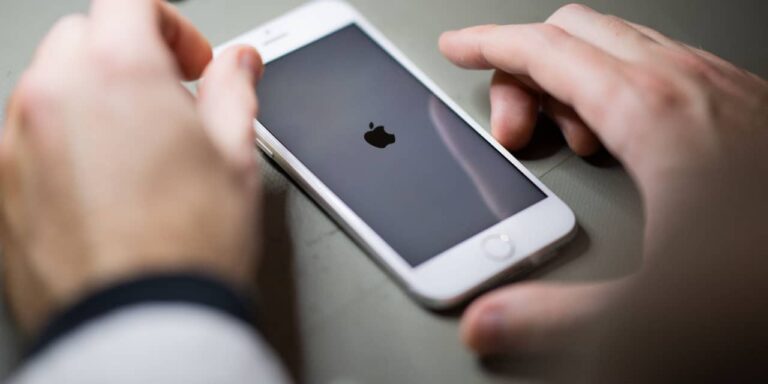Investors who were savvy enough to buy Apple Inc. bonds in October are now looking at equity-like returns, as prices have climbed while spreads have tightened as Treasury yields tumbled.
Hopes for one or more rate cuts by the Federal Reserve in 2024 have sparked a rally in Treasurys that has seen the Bloomberg US Aggregate Bond Index, a broad-based fixed-income benchmark, surge 4.91% so far in November as of Wednesday’s close. That puts it on pace for the biggest monthly gain since May 1985, when the monthly return was 5.23%.
The high-grade and highly liquid bonds issued by the iPhone maker have gained up to 15% in price depending on duration, while spreads have tightened up to 22 basis points, since mid-October, as the following charts from data-solutions provider BondCliQ Media Services show.
In comparison, Apple’s stock
AAPL,
has rallied about 10%
Since MarketWatch wrote on Oct. 18 that investors were flocking to bonds issued by (almost all) of the Magnificent Seven companies for their juicy yields, the bonds have rallied.
At the time, Apple’s 10-year bonds were yielding about 5.2%, while the stock’s implied dividend yield stood at 0.54%.
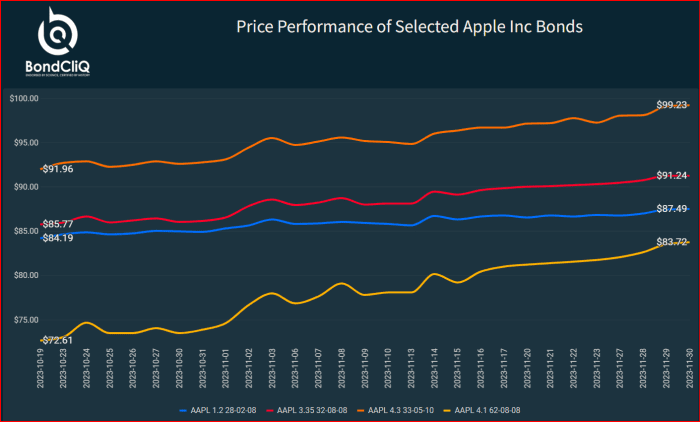
Price performance of select Apple Inc. bonds
BondCliQ Media Services
The following chart shows the movement in spreads in the same time frame.
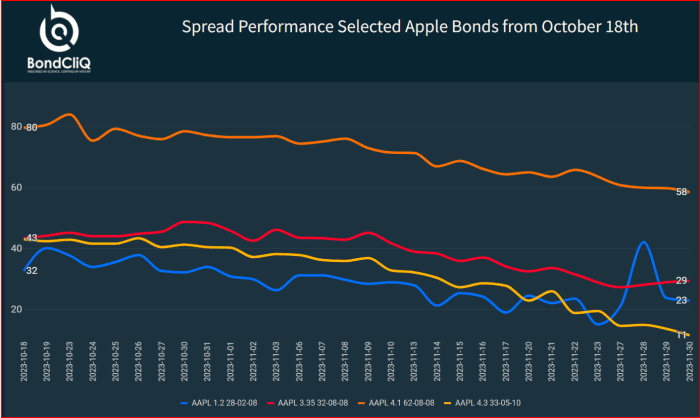
Spread performance for select Apple bonds from Oct. 18.
BondCliQ Media Services
Given those strong returns, the bonds have seen net selling in the last 10 days, most likely due to profit-taking as the month draws to a close and fund managers seek to lock in some gains.
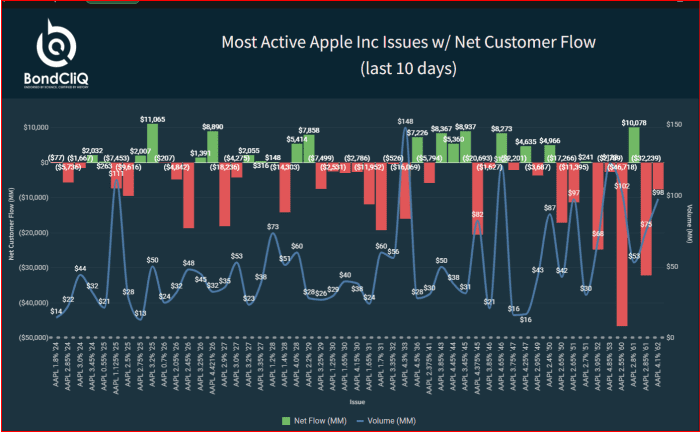
Most active Apple Inc. issues with net customer flow (last 10 days).
BondCliQ Media Services
Bonds issued by Apple and other household name companies had fallen in price as yields climbed during the rate-hiking cycle the Federal Reserve started in March 2022. That’s because of the inverse relationship between bond prices and yields and not because of any credit-quality issue.
But the move meant investors could add high-yielding, high-quality names to portfolios at a discount.
Apple has issued billions of dollars of bonds with maturities out to 50 years, much of it intended to raise the funds for shareholder returns. In 2013, for example, it issued $17 billion of bonds in a six-part deal, its first bond issuance since a convertible offering in 1996. At the time, most of the company’s cash was parked overseas, and would have been subjected to a 35% tax if the company had repatriated it.
After 2013, the company kept issuing bonds to take advantage of rock-bottom borrowing rates at the time.
For Apple investors, there’s just one stock, but there are many bonds in circulation to choose from.
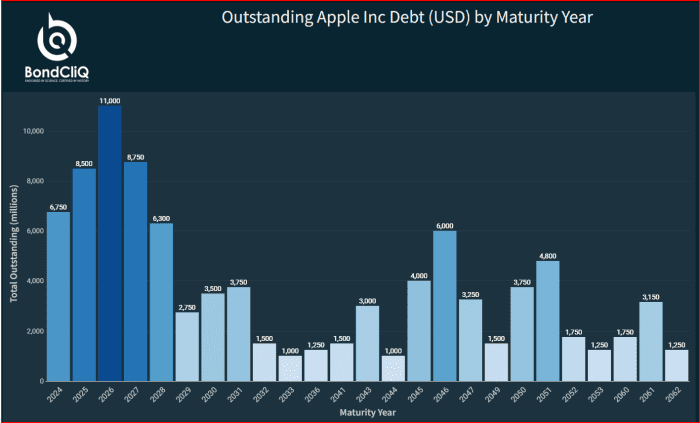
Outstanding Apple Inc. debt (USD) by maturity year
BondCliQ Media Services
Read also: Corporate bonds are on sale. How to add cheap Apple, Disney and Microsoft bonds to your portfolio.


